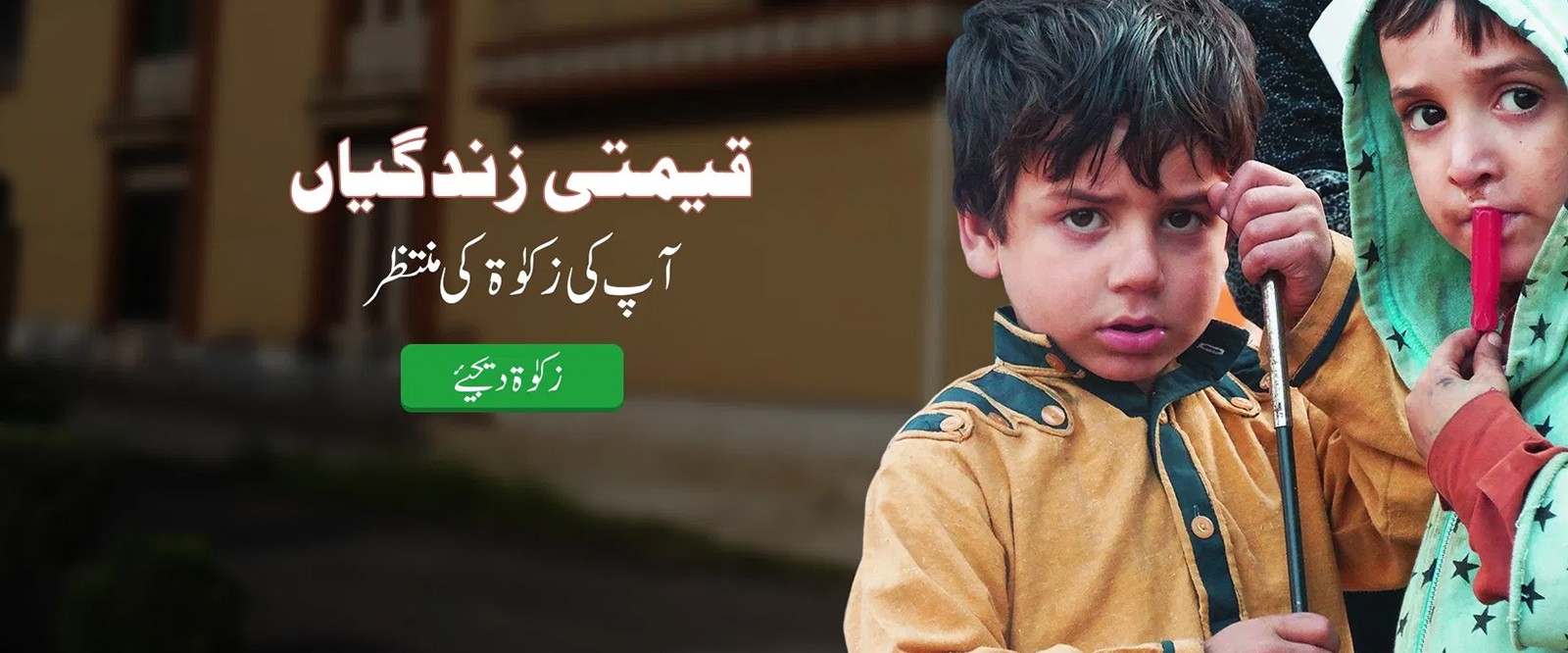Elevate your Ramadan with the power of Zakat
- Change a life forever
Zakat, a form of almsgiving in Islam, holds great importance during the month of Ramadan. Not only does Zakat donation bring blessings and rewards from Allah (SWT), but it also has the power to greatly benefit those in need. Giving Zakat online through platforms like Transparent Hands can make the process of donating easy and convenient. By paying Zakat online during Ramadan, one can make a significant impact in the lives of those who are less fortunate.
Transparent Hands collects and spends the Donation funds in accordance with the instructions of Shariah
Download Shariah Compliance CertificateDon’t Guess, Use Our Zakat Calculator for Accurate Giving
Zakat Calculator
Pay Zakat online with the intention of pleasing Allah (SWT), and reap the rewards described in the Hadith:
"Save yourself from Hell-fire even by giving half a date-fruit in charity."
(Sahih Al-Bukhari)
What is Zakat and how to Calculate Zakat?
Zakat is an act of worship we perform with the wealth Allah (SWT) has blessed us with. It is a religious duty which cleans away impurities from our provision and ensures excess wealth is distributed among those in need. Zakat is an obligation upon any Muslim who has reached puberty, is sane, and has above the minimum required amount of wealth (Nisab).
It requires giving a calculated amount (usually 2.5%) to the poor and needy. The more Zakat that is paid, the more beneficial it is to the poor and needy. First of all, you’ll need to work out whether you’re obligated to pay Zakat by looking at whether what you own meets the Nisab. The value of the Nisab is 612.36 grams of pure silver so the monetary value of the Nisab will vary according to current prices. The Nisab threshold is approximately USD 487.01. Our updated Zakat Calculator can help you with that. Pay Zakat Online.
Zakat becomes mandatory as soon as a person reaches the Nisab amount. The Zakat obligation must be met each lunar year on the anniversary of reaching Nisab.
You Should Donate Zakat on These Types of Wealth:
-
- Gold in any form such as jewelry or solid gold, whether it’s being used or not
- Any form of silver for any purpose or use
- Cash in your:
Bank accounts - EasyPaisa
- Online and digital payment platforms
- Loans given to others
- Business investments
- Cash in your:
- Trade goods bought for selling
The easiest way to calculate your Zakat is to find out the monetary value of each type of wealth and then work out 2.5% of the total sum. Zakat is the third pillar of Islam; the compulsory donation of a proportion of your wealth to the poor (2.5%) in order to cleanse your income and live a good and responsible life.
Besides spending Zakat on eligible recipients, it’s also important to transfer ownership of Zakat to make it valid.
Zakat-ul-Fitr:
Eligible Muslims are required to pay Zakat-ul-Fitr (Fitra) during the month of Ramadan as a token of thankfulness to Allah (SWT) for having enabled him to observe fasts. Its purpose is to purify those who fast from any indecent act or speech and to help the poor and needy. Every Muslim who meets the Nisab threshold should pay Zakat al-Fitr. It should be paid before Salaat-ul-Eid.
You can pay Zakat online through our Zakat Calculator this Ramadan.
Zakat FAQS
Zakat is an obligatory amount that every Muslim has to pay on his wealth. It is the third most important pillar of Islam which we Muslims must follow in order to help the poor and needy.
Every Muslim who has reached puberty and has necessary means (money and goods) which are more than his debts, is obliged to give Zakat.
These are the things on which every Muslim is obliged to pay zakat: Gold, silver, cash (savings/reserves), property (other than residential use), business merchandise, stocks, livestock, precious metals or minerals, mutual funds and agriculture produce.
You are not obliged to pay zakat on the items of personal use which includes; food, clothing, shelter, house (where you are living), car, cash which doesn’t reach the nisab amount and any property that is not being used for business purposes.
Nisab is the minimum threshold amount that every Muslim must possess before paying zakat. Nisab determines whether that person is liable to pay zakat or not. The Nisab threshold is approximately USD 487.01.
You need to put the put the value of wealth you own and our zakat calculator will find you the amount you need to pay in Ramadan.
If your wealth is above the nisab after one year passes, then the rate of zakat advised by Prophet Muhammad (PBUH) is 2.5%. You can calculate it by adding up your zakatable assets/wealth and deducting loan amount if any.
You should wait for one year to pass for the money and goods to be equal to nisab amount on which zakat is determined. However, you can also pay zakat before its due time. For the zakat which was not given in its due time, you can pay it at once to any needy person.
Yes, you can give it in installments or all at once. The thing that matters the most is, you are giving zakat which is obligatory on every Muslim who have necessary means to pay the zakat amount.
No, there is no defined time to give your zakat. You can pay it when it becomes obligatory on you. You don’t have to wait for Ramadan or any specific month to give zakat. If your assets/wealth reaches the nisab amount and stays above it for one year, that’s when you are obliged to pay zakat.
If you want to give zakat of your animals, then you can either give some of your animals or its equivalent as your zakat amount. However, you must give whichever can be useful for the poor and needy to whom you intend to give your zakat.
Goods that are sold and bought to make a profit are tradable goods. If anyone has tradable goods whose value is equal to 80.18 grams of gold is entitled to give 2.5% zakat on the total value.
If the jewelry (silver and gold) is equal to the amount of nisab, then a woman must pay zakat for them.
Anyone who is a partner of a company is entitled to pay zakat on the amount of shares he has with the company if that’s equivalent to the nisab after one year of obtaining them.
A person, who has invested in the shares which are sold and bought in the stock exchange, is entitled to pay zakat if the value of a share is equal to or more than the nisab after one year of obtaining them.
Yes, you are obliged to pay zakat on the money you saved for Hajj or Umrah provided you have kept this money for one year and it is above the Nisab threshold.
There are specific people to whom zakat can be given. Quran has stated about them; “The alms are only for the Fuqara’ (the poor), and Al-Masakin (the needy) and those employed to collect (the funds); and to attract the hearts of those who have been inclined (towards Islam); and to free the captives; and for those in debt; and for Allah’s Cause, and for the wayfarer (a traveler who is cut off from everything); a duty imposed by Allah. And Allah is All-Knower, All-Wise.” [Al-Quran 9:60]”
Zakat cannot be given to your father, mother, grandparents, son, daughter, children of son or daughter and their grandchildren. Apart from that, zakat should not be given to the people or institutes other than those mentioned in the Quran.
There is no restriction in giving zakat and fitrah to the charitable institutions who collect this money and give to the deserving people mentioned in Quran.
It’s clearly mentioned in Quran about the people to whom zakat can be given. If someone is earning salary or wage that is not enough to meet his basic necessities and he doesn’t have any other assets then that person can be given zakat.
If a person who is living with his father but own a property himself is entitled to pay zakat. However, if he is earning together with his father and has a joint property with him, then anyone who has authority to use the money has to pay obligatory zakat amount.
If they are deserving and have no other means of earning, then they can be given zakat.
If the son-in-law is poor, then zakat can be given to him as he has to take care of his wife and kids. However, it is not preferred to give zakat to daughter in law as it will be like giving zakat indirectly to own son.
The person who is willing to pay zakat should first search about the person to whom he is giving zakat to; whether he/she is eligible to receive zakat or not. After searching, if that person still turns out to be rich after receiving zakat, then in this case zakat is valid. On the other hand, if anyone pays zakat without searching properly then the zakat will not be valid if the he finds out later that the man is rich.
Since you don’t have blood relation with your mother-in-law and father-in-law, you can give zakat to them if they are poor.
All Zakat funds are kept in a separate digitally-managed Zakat account. We allocate funds from this account to Zakat-eligible patients, campaigns, and projects. This ensures that all Zakat donations are spent in accordance with the instructions of the Shariah.
We aim to distribute Zakat within one lunar year of receiving the funds. However, the funds are usually spent in a much shorter period of time, depending on the availability and needs of our patients.
Transparent Hands doesn’t distribute Zakat in the form of cash. We only use Zakat funds to provide surgical and medical care to the poor and needy.
Transparent Hands distributes Zakat within one lunar year. But if any Zakat donations are not distributed within this period, it becomes our priority to spend the funds as soon as possible.








